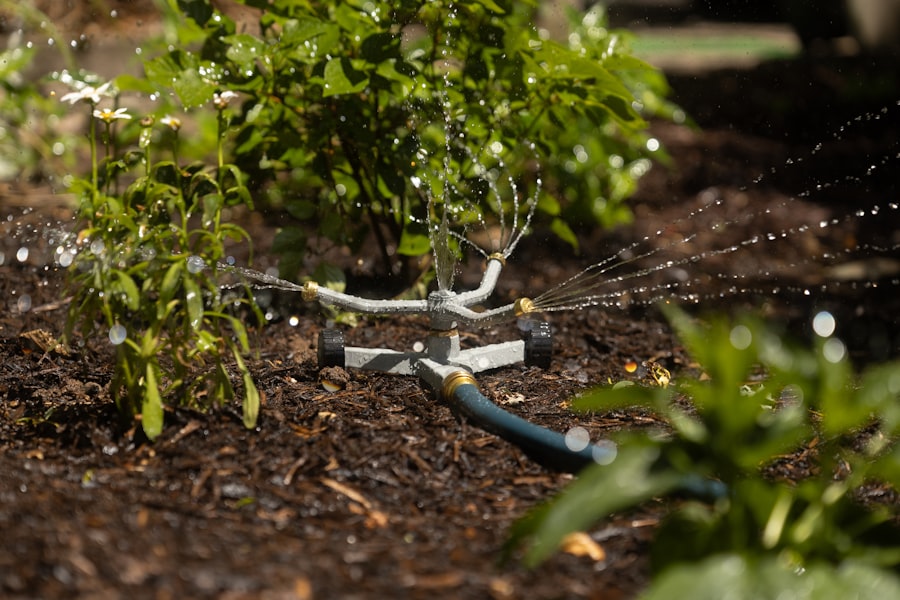Bobcats are common predators of chickens and can significantly threaten poultry flocks. These wild felines are renowned for their stealth and agility, making them efficient hunters. Typically solitary, bobcats are most active during twilight hours, posing a risk to chickens in the early morning and late evening.
Their climbing abilities allow them to easily scale fences and trees to access coops. Identifying bobcats and understanding their behavior is crucial for effective chicken protection. Bobcats are characterized by their spotted fur, tufted ears, and short tails.
They are approximately twice the size of domestic cats, with long legs and a lean, muscular build. As opportunistic hunters, bobcats prey on small animals, including chickens when available. Their hunting strategy involves a stealthy approach followed by quick, decisive attacks.
Recognizing bobcat characteristics and predatory behavior is essential for implementing effective measures to safeguard chickens from these wild felines.
Table of Contents
- 1 Securing your coop: Implementing physical barriers to keep bobcats out
- 2 Deterrent tactics: Using noise, lights, and motion to discourage bobcats from approaching
- 3 Creating a safe environment: Providing hiding spots and cover for chickens to evade bobcats
- 4 Monitoring the surroundings: Keeping an eye out for bobcat activity and signs of their presence
- 5 Seeking professional help: Contacting wildlife experts for advice on dealing with bobcats
- 6 Educating others: Sharing knowledge and tips with fellow chicken owners to prevent bobcat encounters
- 7 FAQs
- 7.1 What are bobcats and why are they a threat to chickens?
- 7.2 What are some effective ways to keep bobcats away from chickens?
- 7.3 What kind of fencing is best for keeping bobcats away from chickens?
- 7.4 Are there any natural deterrents that can help keep bobcats away from chickens?
- 7.5 What should I do if I encounter a bobcat near my chickens?
Key Takeaways
- Bobcats are skilled hunters and can pose a threat to chickens, especially during dusk and dawn.
- Use sturdy fencing and hardware cloth to secure the coop and prevent bobcats from gaining access.
- Install motion-activated lights and use noise-making devices to deter bobcats from approaching the coop.
- Provide dense vegetation and hiding spots for chickens to escape and evade bobcats.
- Regularly inspect the surroundings for bobcat tracks, scat, and other signs of their presence.
- Seek guidance from wildlife experts on effective strategies for managing bobcat interactions.
- Share experiences and knowledge with other chicken owners to raise awareness and prevent bobcat encounters.
Securing your coop: Implementing physical barriers to keep bobcats out
Inspect and Seal Entry Points
One of the most effective ways to protect your chickens from bobcats is by implementing physical barriers to keep them out of your coop. Start by inspecting your coop for any potential entry points, such as gaps in the fencing or holes in the structure. Ensure that all openings are securely sealed to prevent bobcats from gaining access.
Secure the Perimeter and Roof
Consider installing hardware cloth or welded wire mesh around the perimeter of your coop to create a secure barrier that is difficult for bobcats to penetrate. In addition to securing the perimeter of your coop, it’s important to reinforce the roof and any other potential entry points. Bobcats are skilled climbers and can easily scale fences or trees to access your coop from above.
Additional Security Measures
Consider installing a roof or wire mesh over the top of your coop to prevent bobcats from gaining entry from above. It’s also important to secure any doors or windows with sturdy locks or latches to prevent bobcats from forcing their way inside. By implementing physical barriers, you can effectively deter bobcats from accessing your coop and keep your chickens safe from harm.
Deterrent tactics: Using noise, lights, and motion to discourage bobcats from approaching
In addition to physical barriers, you can also use deterrent tactics to discourage bobcats from approaching your coop. One effective method is to use noise, such as a motion-activated alarm or radio, to startle and deter bobcats from approaching. The sudden loud noise can be enough to scare off a bobcat and prevent it from attempting to access your coop.
You can also consider installing motion-activated lights around the perimeter of your coop to deter bobcats from approaching during the night. The sudden burst of light can startle and discourage bobcats from getting too close to your chickens. Another effective deterrent tactic is to use motion-activated sprinklers or water jets to startle and deter bobcats from approaching your coop.
Bobcats are typically wary of water and will be deterred by the sudden burst of water, preventing them from getting too close to your chickens. By using a combination of noise, lights, and motion-activated deterrents, you can effectively discourage bobcats from approaching your coop and keep your chickens safe from potential harm.
Creating a safe environment: Providing hiding spots and cover for chickens to evade bobcats
Creating a safe environment for your chickens is essential in protecting them from bobcats. Provide hiding spots and cover for your chickens to evade bobcats in case they do manage to gain access to your coop area. Consider planting dense shrubs or bushes around the perimeter of your coop to provide natural cover for your chickens.
This will give them a place to hide and evade bobcats if they do manage to approach the coop area. In addition to natural cover, you can also provide artificial hiding spots for your chickens, such as wooden shelters or tunnels, where they can seek refuge if a bobcat approaches. These hiding spots should be strategically placed around the coop area to give your chickens multiple options for evading bobcats.
By providing hiding spots and cover for your chickens, you can create a safe environment that will help them evade potential threats from bobcats.
Monitoring the surroundings: Keeping an eye out for bobcat activity and signs of their presence
It’s important to regularly monitor the surroundings of your coop for any signs of bobcat activity or presence. Look for tracks, scat, or other signs of bobcat presence around the perimeter of your coop. Bobcats are territorial animals and will often leave signs of their presence in the form of tracks or scat.
By keeping an eye out for these signs, you can stay informed about potential bobcat activity in your area and take proactive measures to protect your chickens. In addition to looking for signs of bobcat presence, it’s also important to keep an eye out for any potential threats or disturbances around your coop. Be vigilant and observant of any unusual behavior or activity that could indicate a potential threat from bobcats.
Regularly inspect the perimeter of your coop for any signs of attempted entry or disturbance that could indicate a bobcat has been trying to access your chickens. By monitoring the surroundings of your coop, you can stay informed about potential bobcat activity and take proactive measures to protect your chickens from harm.
Seeking professional help: Contacting wildlife experts for advice on dealing with bobcats

Seeking Professional Help
If you’re dealing with persistent bobcat activity around your coop, it may be necessary to seek professional help from wildlife experts. Contact local wildlife authorities or animal control agencies for advice on dealing with bobcats in your area.
Expert Guidance and Advice
They can provide valuable insight and guidance on effective measures to protect your chickens from potential harm. Wildlife experts can also offer advice on humane deterrent tactics and non-lethal methods for dealing with bobcats.
Humane Deterrents and Strategies
They may be able to provide recommendations on effective deterrents or strategies for keeping bobcats away from your coop without causing harm to the animals. By seeking professional help, you can gain valuable knowledge and expertise on dealing with bobcats and protecting your chickens from potential threats.
Educating others: Sharing knowledge and tips with fellow chicken owners to prevent bobcat encounters
One of the most important steps in preventing bobcat encounters is educating others about the potential threat and effective measures for protection. Share your knowledge and tips with fellow chicken owners in your community to help them prevent bobcat encounters and protect their flocks. By raising awareness about the threat of bobcats and sharing effective strategies for protection, you can help others take proactive measures to safeguard their chickens.
Consider organizing workshops or informational sessions for fellow chicken owners to share your knowledge and expertise on dealing with bobcats. Provide practical tips and advice on implementing physical barriers, deterrent tactics, creating a safe environment, monitoring surroundings, seeking professional help, and other effective measures for protecting chickens from bobcat encounters. By educating others, you can empower fellow chicken owners with the knowledge and tools they need to prevent bobcat encounters and keep their flocks safe from harm.
In conclusion, protecting chickens from bobcats requires a multi-faceted approach that includes understanding the threat, implementing physical barriers, using deterrent tactics, creating a safe environment, monitoring surroundings, seeking professional help, and educating others. By taking proactive measures and staying informed about potential threats from bobcats, you can effectively protect your chickens and prevent encounters with these formidable predators. With careful planning and strategic implementation of protective measures, you can create a safe environment for your chickens and minimize the risk of harm from bobcats.
If you’re looking for more tips on keeping your chickens safe from predators like bobcats, check out this article on PoultryWizard. They offer a wealth of information on poultry care and management, including advice on protecting your flock from potential threats.
FAQs
What are bobcats and why are they a threat to chickens?
Bobcats are a species of wild cat native to North America. They are a threat to chickens because they are natural predators and will hunt and kill small animals, including chickens.
What are some effective ways to keep bobcats away from chickens?
Some effective ways to keep bobcats away from chickens include using secure fencing, keeping chickens in a secure coop at night, using motion-activated lights or sound deterrents, and removing any potential food sources that may attract bobcats.
What kind of fencing is best for keeping bobcats away from chickens?
The best type of fencing for keeping bobcats away from chickens is a sturdy, high-quality wire mesh fence that is at least 6 feet tall and extends at least 1 foot underground to prevent digging.
Are there any natural deterrents that can help keep bobcats away from chickens?
Some natural deterrents that may help keep bobcats away from chickens include planting thorny bushes or using strong-smelling plants like lavender or rosemary around the chicken coop.
What should I do if I encounter a bobcat near my chickens?
If you encounter a bobcat near your chickens, it’s important to remain calm and avoid approaching the animal. Make loud noises, wave your arms, and try to appear larger to scare the bobcat away. If the bobcat does not leave, contact local wildlife authorities for assistance.
Meet Walter, the feathered-friend fanatic of Florida! Nestled in the sunshine state, Walter struts through life with his feathered companions, clucking his way to happiness. With a coop that’s fancier than a five-star hotel, he’s the Don Juan of the chicken world. When he’s not teaching his hens to do the cha-cha, you’ll find him in a heated debate with his prized rooster, Sir Clucks-a-Lot. Walter’s poultry passion is no yolk; he’s the sunny-side-up guy you never knew you needed in your flock of friends!







